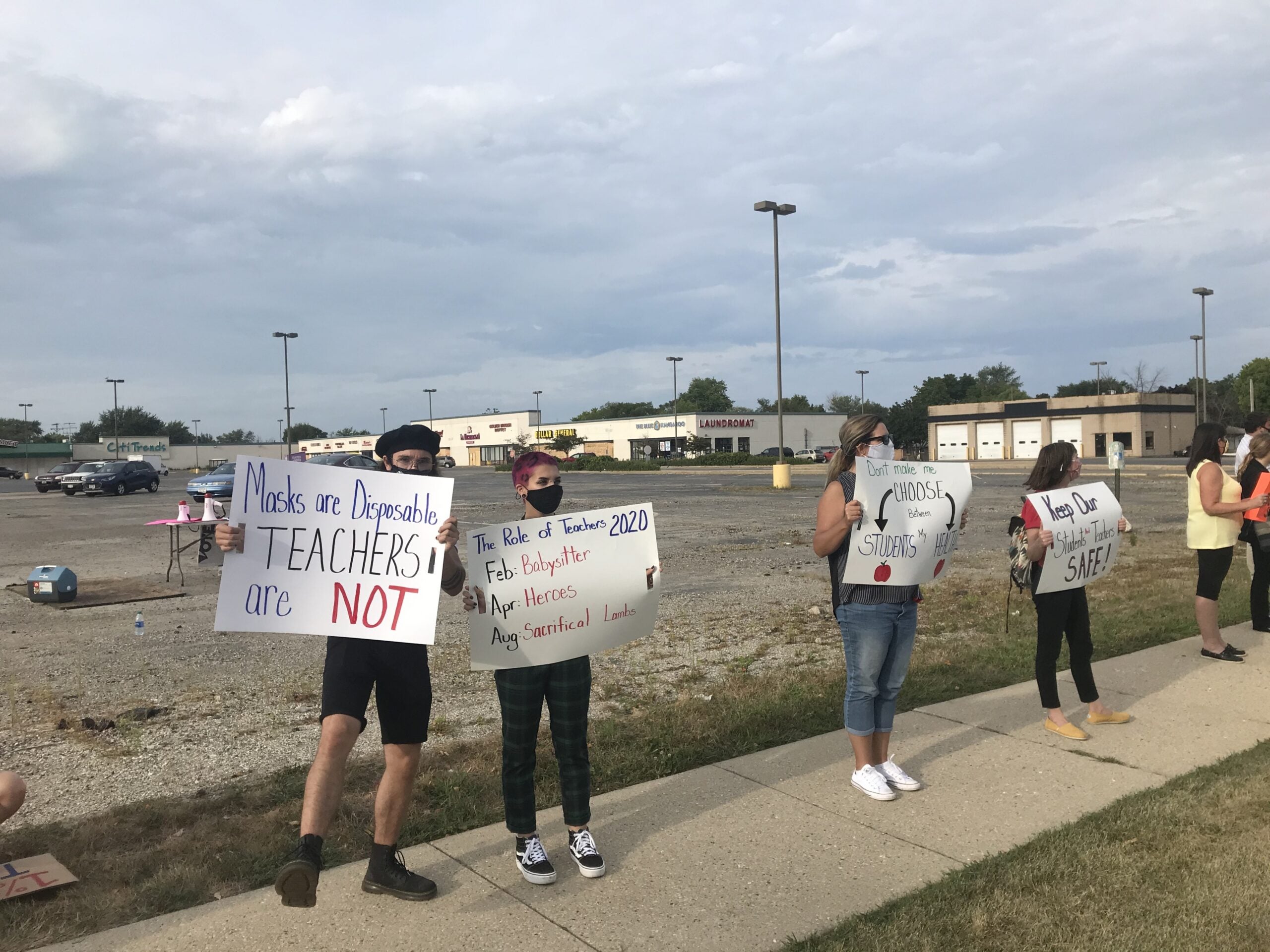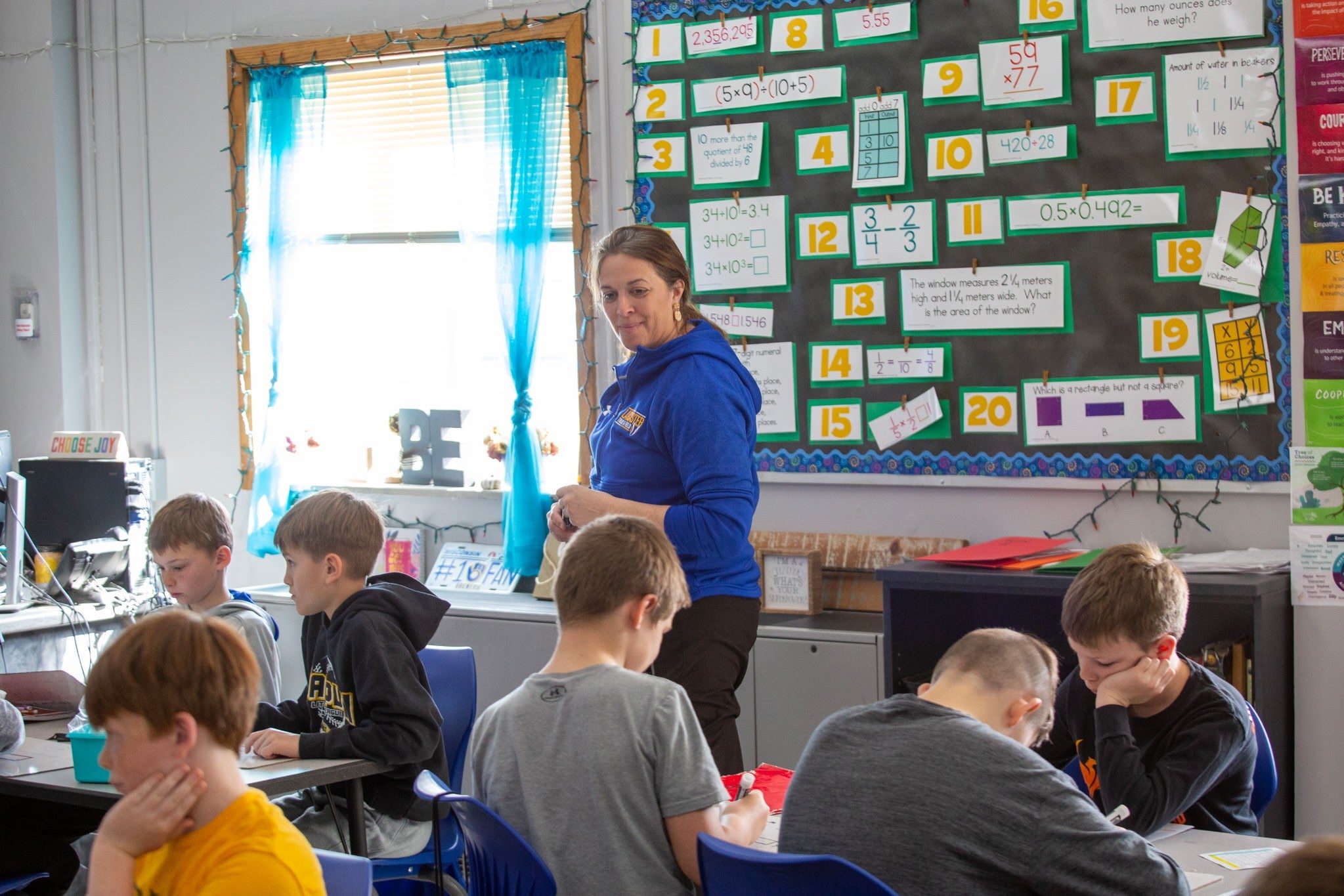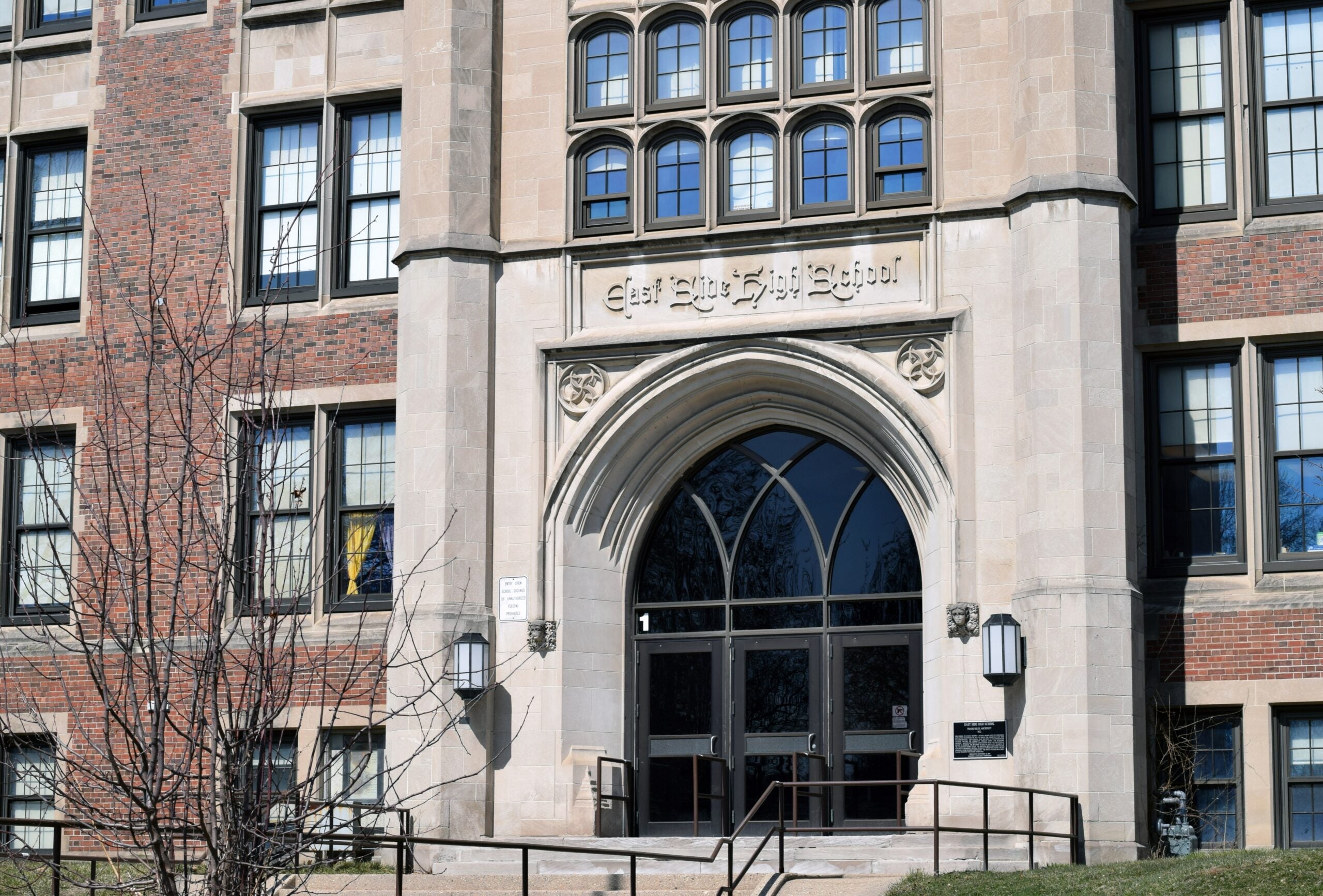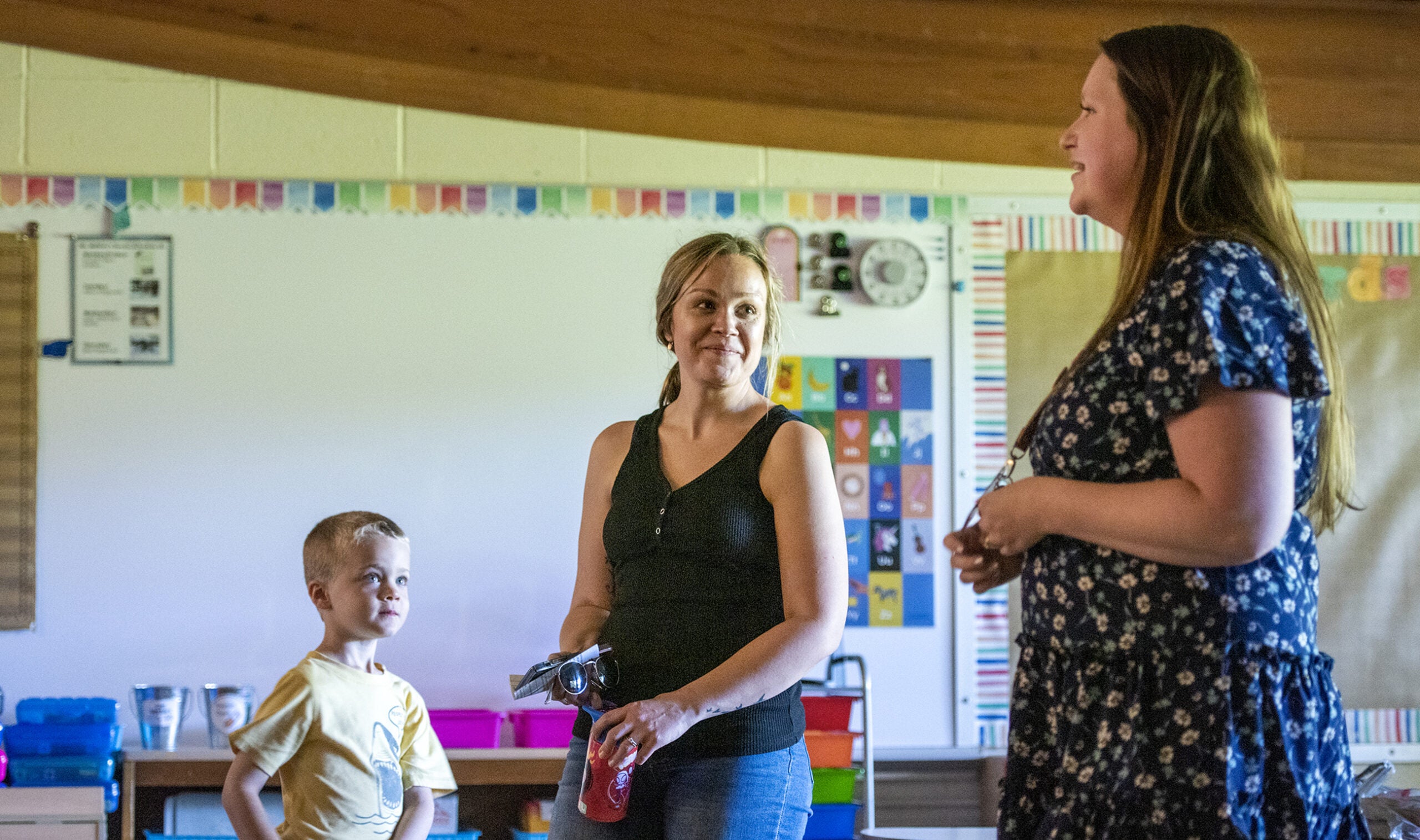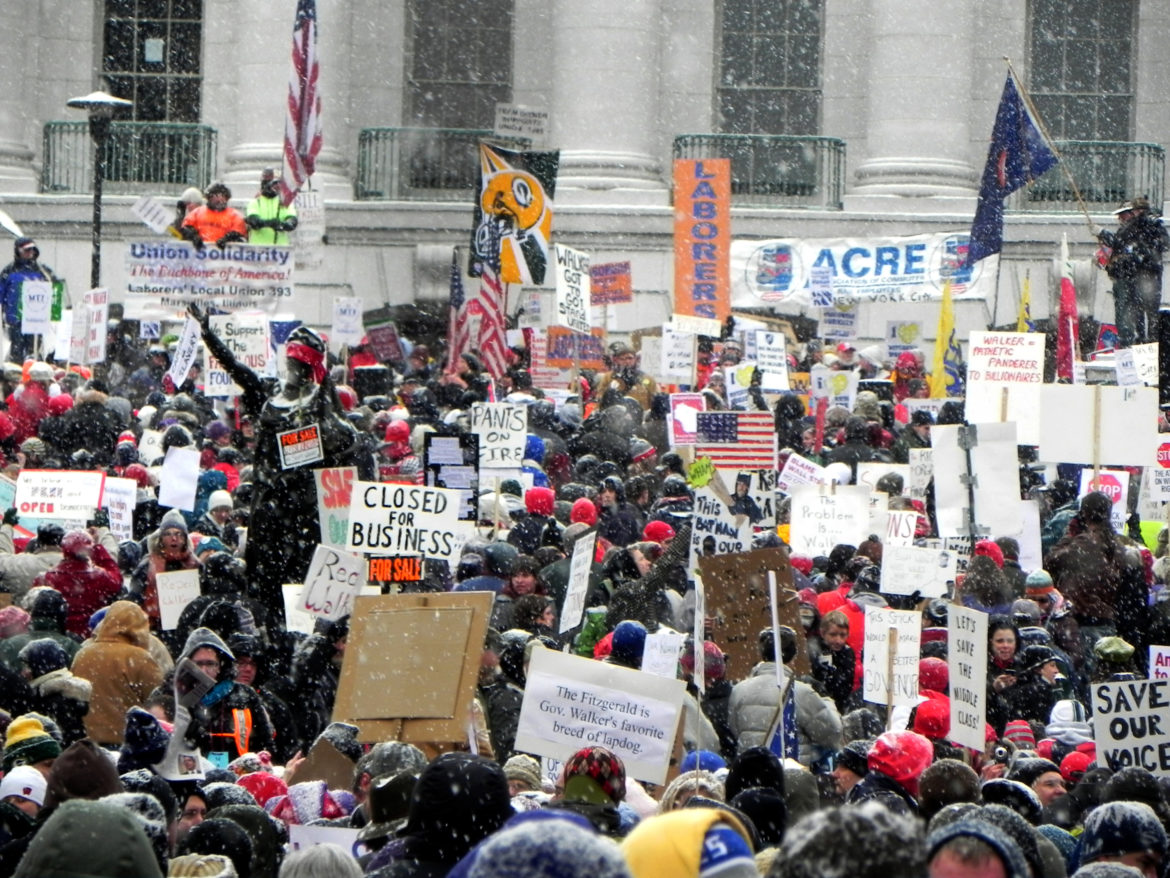Wisconsin’s largest teacher’s union is calling for school districts and local municipalities to follow new state Department of Health Services guidelines about restricting large gatherings and opting for work-from-home arrangements to the fullest extent possible if they’re experiencing high rates of COVID-19 transmission.
Wisconsin Education Association Council President Ron Martin, speaking at a press conference on Tuesday afternoon, said he isn’t calling for one-size-fits-all decisions, but that schools should be as cautious as they can.
“We’re not asking that they all be closed. What we’re saying is we’ve got to take this seriously, and we’ve got to take a look at good evidence and good facts in making that decision,” he said. “Local districts should hold in-person classes only when their communities meet benchmarks set by health experts.”
Stay informed on the latest news
Sign up for WPR’s email newsletter.
Martin also called for districts to “put an end to unrealistic demands for educators,” whom, he said, are often doing three times the work they’d need to manage in a normal school year. Some have to prepare both virtual and in-person lessons, along with distance lessons for students who can’t come into a classroom but also can’t connect reliably to virtual lessons.
“Here we are, October 6, and we have educators who are at the end of their rope,” he said. “It’s not good for our educators, and it’s not good for our teachers.”
He said WEAC has heard about worsening teacher shortages in some parts of the state as some teachers have opted to retire early or quit out of health concerns or expanded family responsibilities. Substitute teachers, too, are in short supply in some areas, since many are retired teachers in a high-risk age group.
At the same time, he said he’s worried about a chilling effect going forward, with some who might have considered going into teaching now deciding against it after seeing the additional risks educators are facing with COVID-19.
“Since the lost of collective bargaining, et cetera, we’ve lost a lot of really good potential educators because of the way educators are being treated,” he said. “It’s only been made worse in this environment.”
Some, too, are worried about raising concerns about a school or district that’s not following its own policies to mitigate the spread of COVID-19. Martin said local WEAC organizers have heard some stories about districts that are putting teachers and students at risk, and have passed those issues on to DHS, the state Department of Public Instruction and the governor’s office.
“There are people who are afraid, or even being directed and told not to say things about what’s going on for fear that the school might get closed down,” he said. “What we’re saying to our members is, the number one responsibility you have right now is the health and safety of every single student that you teach.”
He said the union is also working on setting up a hotline so educators can call in if they think their district isn’t taking adequate precautions or if they feel they’re being asked to do things that could put students’ health at risk.
Wisconsin teachers can’t legally strike, and Martin said he’s not advising WEAC members to do so.
“We will continue to advocate for our members to do everything that’s within the right of the employee,” he said. “We will never encourage anything illegal.”
Martin also called for the Legislature to provide financial support to schools.
“We have to get to work and pass some legislation that supports our public schools so that they can have the resources that are needed to be able to do face-to-face (instruction), or virtual, or a hybrid of the two,” he said.
Local businesses, too, will need some legislative help, he said, so they can afford to let workers who can’t work from home take time off to watch children who are learning virtually.
“If their employees are afraid to be at work, or can’t be there because their child needs supervision, we’ve got to partner with our communities, we’ve got to partner with businesses, and our legislature can help facilitate that,” he said.
Martin said the uncertainty around when schools will close, and whether families can turn quickly to virtual learning while also balancing work and health concerns, is taking a toll on students, as well.
“Our kids are counting on us,” he said. “This is tough on everyone, and we know it’s particularly tough on the kids we teach.”
Wisconsin Public Radio, © Copyright 2025, Board of Regents of the University of Wisconsin System and Wisconsin Educational Communications Board.
